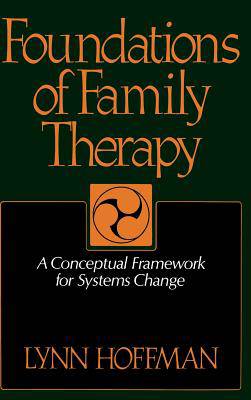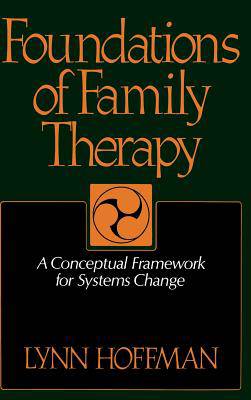
- Retrait gratuit dans votre magasin Club
- 7.000.000 titres dans notre catalogue
- Payer en toute sécurité
- Toujours un magasin près de chez vous
- Retrait gratuit dans votre magasin Club
- 7.000.0000 titres dans notre catalogue
- Payer en toute sécurité
- Toujours un magasin près de chez vous
Foundations of Family Therapy
A Conceptual Framework for Systems Change
Lynn Hoffman
Livre relié | Anglais
68,45 €
+ 136 points
Description
Of all the therapeutic modalities in force today, none shows greater promise for dramatic personal change than the fast-growing field of family therapy. Yet no discipline is more lacking in a unified theoretical framework.Now, in this brilliant new work, Lynn Hoffman, noted therapist and, with Jay Haley, author of Techniques of Family Therapy (Basic Books, 1968) provides the much-needed synthesis that weaves together the diverse themes and concepts around which family theory and therapy have evolved. Sweeping in its coverage, solidly researched yet consistently lively and readable, Foundations of Family Therapy is unique in the way it successfully bridges the gap between the family field and other social sciences.Starting with Gregory Bateson's seminal ideas on social fields, the book examines key concepts that have come to family therapy from general systems theory, notably the cybernetic paradigm. The author looks closely at the early studies of combination patterns in "schizophrenic" families and then connects this research with related work on family typology and on the whole range of emotional disorders.The second part of the book explores the major schools of family therapy and such figures as Minuchin, Bowen, Whitaker, Haley, Erickson, and Ackerman, as well as the revolutionary work of Selvini Palazzoli and her associates in Milan.Bold in conception, beautifully integrative, Foundations of Family Therapy conveys the excitement of the growth of ideas, while at the same time giving the reader a systematic and coherent overview of family therapy as it is practiced today. Both clinicians and researchers will recognize it as the major synthesis of contemporary family therapy.
Spécifications
Parties prenantes
- Auteur(s) :
- Editeur:
Contenu
- Nombre de pages :
- 400
- Langue:
- Anglais
Caractéristiques
- EAN:
- 9780465024988
- Date de parution :
- 07-08-81
- Format:
- Livre relié
- Format numérique:
- Genaaid
- Dimensions :
- 167 mm x 242 mm
- Poids :
- 739 g

Les avis
Nous publions uniquement les avis qui respectent les conditions requises. Consultez nos conditions pour les avis.






